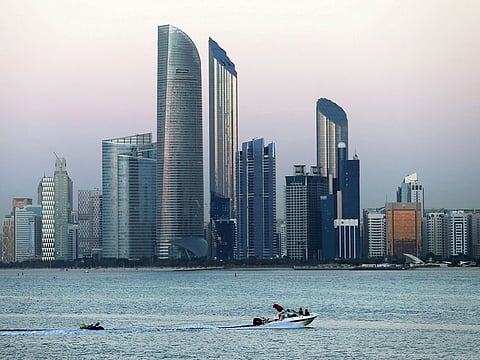Abu Dhabi exempts 1,200 business activities from lease contract requirement
29.5% of the total economic activities to benefit from the move

Abu Dhabi authorities will grant 1,200 economic activities a one-year exemption from having a lease contract for work premises, it was announced on Tuesday.
The initiative by Abu Dhabi Business Centre (ADBC), part of the Abu Dhabi Department of Economic Development (ADDED), is to enhance the emirate’s business environment and incentivise entrepreneurship.
The businesses included in this initiative are 29.5 per cent of total economic activities licenced and regulated by ADDED, which reached 4,062 by end of 2021.
The exemption is part of the initiatives launched recently by ADDED for ease of doing business, including slashing business setup and renewal fees by over 94 per cent and reducing over 71 per cent in business set-up requirements.
The lease contract exemption is valid for a period of one year from the date of licence issuance, and a lease agreement should be submitted upon the renewal of the licence, or before that.
The move was welcomed by the business sector, which witnessed a 21.5 per cent increase in new economic licences, while renewals went up by 15.8 per cent in 2021.
The initiatives launched by Abu Dhabi helped the emirate’s economy recover strongly after the Covid-19 setback. The emirate’s GDP grew by 1.9 per cent, and non-oil GDP growth rate was 4.1 per cent while sectors affected by COVID-19 showed strong recovery with a growth rate of over 15 per cent.
Mohammed Munif Al Mansouri, Executive Director of ADBC, said: “This new initiative is a testament to ADDED’s commitment to enhancing the ecosystem and its proactive approach will enable businesses to benefit from growth opportunities in Abu Dhabi.”
“We constantly connect with entrepreneurs and business owners to best understand their respective sectors and consequently are able to meet their demands and requirements. Giving investors the option to obtain economic licenses without lease agreement reflects our positive, preemptive response to the market’s current needs. We have selected the activities included in this move based on a study of its nature and requirement and will continue our efforts to ensure ease of setting up and doing business as well as supporting entrepreneurs to launch their businesses which will contribute positively to the commercial activity in Abu Dhabi.”
Requirement cancellations
In January, Abu Dhabi announced cancellation of over 20,000 requirements to set up businesses in the emirate, amounting to 71 per cent of the total 28,788 requirements previously in place.
As a sample from the 26 participating entities in the ADDED-led effort, the Department of Municipalities and Transport’s Public Health sector reduced requirements by 95 per cent from 9,654 to 511 covering 1,215 activities; the Abu Dhabi Agriculture and Food Safety Authority reduced requirements by 74 per cent from 6,587 to 1,716 covering 288 activities; the Abu Dhabi Sports Council reduced requirements by 91 per cent from 949 to 82 covering 58 activities; the Department of Health reduced by 56 per cent from 1512 to 672 requirements covering 84 activities; Abu Dhabi Police reduced by 79 per cent from 387 to 80 requirements; and the Securities and Commodities Authority reduced by 40 per cent from 1,160 to 700 requirements.
A robust 2021
The emirate saw 25,427 new licences issued in 2021, up 21.5 per cent from the 2020 figure of 20,925, while renewed economic licences increased to 83,484, up 15.8 per cent from 72,070 in 2020.
Of the 25,427 licences issued, commercial sector licences stood at 24,077, up 21.4 per cent from 19,839 in 2020, with professional sector licences making up 711 were up 35.7 per cent from 524 licences in 2020. Agricultural, livestock and fishery sector licences settled in at 64 in 2021 compared to 70 in 2020. Tourism sector licences grew at 41.4 per cent, while industrial sector licences saw a 14.4 per cent growth. Occupational sector licences were up 9 per cent.
New licenses for foreign investors grew from only six in 2020 to 273 in 2021; freelance licences issued in 2021 increased to 1,749 from 279 in 2020, while virtual licences that were launched in Q4-2021 for non-resident foreign investors came in at 11.







